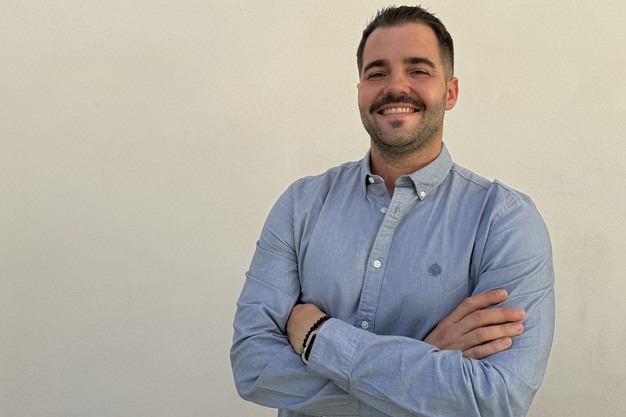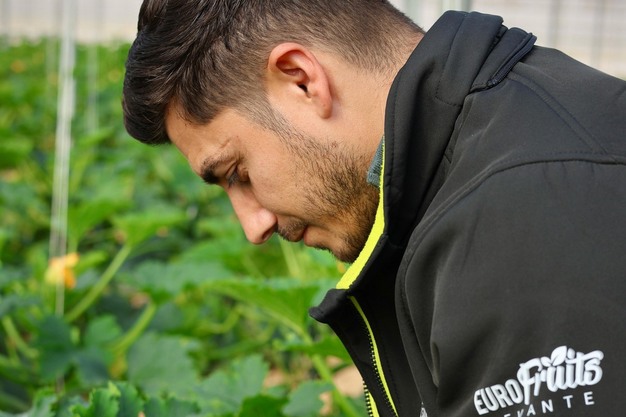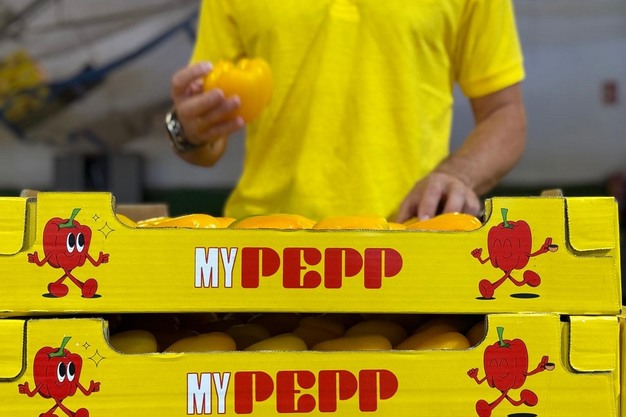In the race to stay in the European markets, a major factor is product freshness. As Egyptian and Moroccan crops gain ground, each producer's strengths become clearer. While third countries stand out in prices, European producers rely on freshness.
"Egyptian sweet potato has carved out a very large niche in the European market, but they are also strong in garlic, onions, and citrus fruits. Morocco is growing every year, so we are focusing on products that are more time-bound and which lose freshness quickly, such as broccoli or pepper," says Israel Ros, Financial Director of Eurofruits Levante.
 © Eurofruits Levante
© Eurofruits Levante
"We have stopped growing sweet potatoes because the Egyptian production has taken a very strong position, and it's very hard for domestic crops to compete. We prefer to focus on products with a shorter shelf life. We are choosing to focus on freshness to compete with third countries," says the manager.
 © Eurofruits Levante
© Eurofruits Levante
Artichoke is losing ground in Campo de Cartagena, mainly because of the need for water and labor, but according to Ros, "we are focusing on artichokes from the Vega Baja del Segura, an area between Alicante and Murcia, especially the hybrid variety, because the Blanca de Tudela is more sensitive to temperature contrasts and rising prices."
 © Eurofruits Levante
© Eurofruits Levante
In this context, Ros believes that "artichoke is going to be considered a gourmet product and buying it will become prohibitively expensive." He says, "It is not a profitable crop, hence the expensive prices. Italy is still consuming a lot, probably because it's brought from Egypt, which is a big producer and is also closer, so the product's quality can be maintained. Egypt has water and a lot of public support. In short, I believe that broccoli cultivation is growing at the expense of the decline of artichoke and sweet potato in Murcia."
"We are playing with the time and freshness barrier. If third countries manage to produce a pepper and deliver it in two days, then we'll have a problem. We stand behind our peppers because it is a delicate crop, and a day or two can make a crucial difference, because you will then need that time when the product hits the shelves," says the manager.
"Other important barriers, such as the use of phytosanitary treatments or labor conditions in these countries, don't seem to be relevant for the European Union," says Ros.
"This year, we are launching our MyVegs product brands. MyBrok for broccoli, MyArti for artichoke, MyPepp for pepper, and MyZuchi for zucchini. We aim to promote consumption among young people and give a new and fresh image to our products. We will make the official launch at Fruit Attraction 2025. We believe it is necessary to distinguish ourselves and offer a reliable quality standard throughout the season. A few years ago, brands in horticultural products were undervalued, but this is now changing," says the manager.
The company mainly grows and sells bell peppers, zucchini, artichokes, and broccoli to supermarkets in France, Germany, Poland, Belgium, and the Netherlands, among others.
For more information:
Israel Ros
Eurofruits Levante
Tel.: +34 638 729 509
[email protected]
[email protected]
https://eurofruitslevante.com
